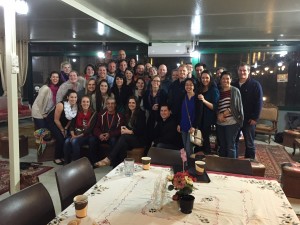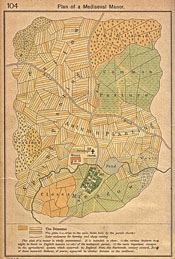Israel Reflections 2015–Day 5: Dinner in a Druze Village
 Throughout the trip, the students had opportunities to immerse themselves in the culture of Israel. As part of this ethnic immersion, we enjoyed a dinner in a Druze village. The Druze religion presented both some familiar elements as well as several that were unique to us. Student Samuel Magnuson recollects the dinner, shares background on the Druze, and gives his thoughts on their culture:
Throughout the trip, the students had opportunities to immerse themselves in the culture of Israel. As part of this ethnic immersion, we enjoyed a dinner in a Druze village. The Druze religion presented both some familiar elements as well as several that were unique to us. Student Samuel Magnuson recollects the dinner, shares background on the Druze, and gives his thoughts on their culture:
On Wednesday, March 11, after a full day in which we visited the Yardenit Baptism site, Haifa University, and the Bahá’í Gardens, we went to a Druze Village near Haifa for dinner. This was one of the highlights of the trip for me because we got to eat an incredible meal prepared by one of the women in the Druze village. I will explain more about what we learned about the Druze in a minute, but I must first discuss the food. When we arrived, we entered a dining hall where we sat at tables of about eight per table. The meal was family-style, meaning that the hosts kept bringing bowls of deliciousness for us to pass around. Of note, we ate stuffed peppers with arguably the sweetest rice I’ve ever experienced. We also had stuffed grape leaves, a really tasty chickpea dish, meatballs, Mediterranean salad, and a main dish of turkey with rice. While all of it was incredible, I must say that the stuffed peppers and chickpeas stood out to me, partially because neither of these dishes are ones I have been incredibly fond of in the States. However, the way the dishes were prepared that night (possibly because of the sauce) led me to eat seconds, thirds, and maybe fourths of each of these items. I also drank several glasses of what I thought was sweet tea . . . only to find out after that this was actually date juice. Fortunately, my stomach was prepared for such an altercation at this junction of the trip.

